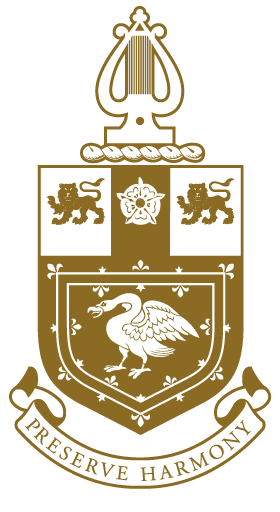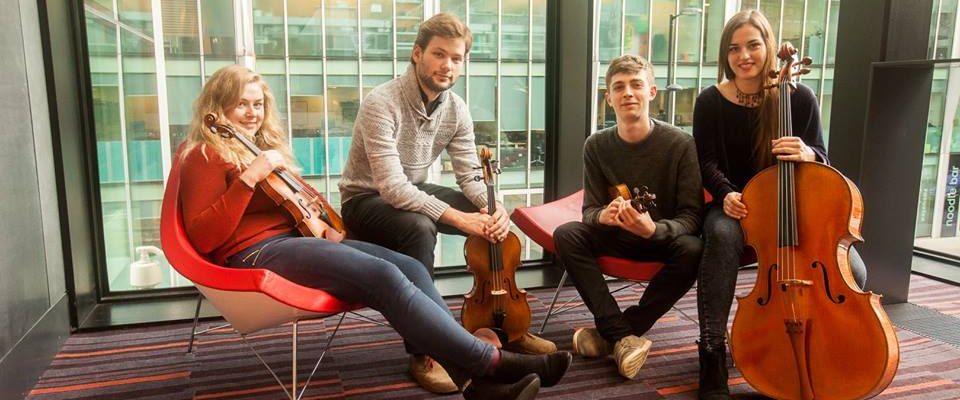Young Artist Interview: Lewis Banks
Classical saxophonist Lewis Banks is a Musicians’ Company Maisie Lewis award winner. A postgraduate student at the Royal Conservatoire of Scotland where he gained a first class BMus (Hons), Lewis has performed with the BBC Scottish Symphony Orchestra, featured in a pre-concert recital with the Scottish Chamber Orchestra and regularly freelances with the Royal Scottish National Orchestra.
When and where did you first pick up the saxophone?
I first picked up the saxophone when I was 11 years old at my local primary school. We were given free instrumental lessons for one year at school, and because my older sister Vanessa already played sax, I guess it just seemed a natural progression. Slightly off-record, I hated playing the sax for the first eight months (I had an awful first teacher who thought I didn’t have the capacity to play the instrument) and it wasn’t until I arrived at high school that I fell in love with it. I had a brilliant teacher there called Andrew Langford who really pushed me on in my playing and in tandem with playing with the school bands – particularly the big band – I was hooked.
What type of saxophone do you play?
I play all saxophones, but specialise in Soprano, Alto and Tenor.
Who are your musical heroes?
The first that comes to mind is saxophonist Sonny Rollins. He has had such a long career, has transformed his playing in so many different ways and continues to play, even at the age of 87, with complete joy and abandon. He even took two long sabbaticals from his career, the first when he was at his height of fame and recognition, simply because he felt he had to practise; an amazing, inspiring dedication to his craft. Dutch saxophonist Arno Bornkamp is another musician who I admire enormously, and who I’m privileged to get lessons from on a part-time basis! His playing is unapologetically expressive and combines an immense understanding of history and tradition, whilst never losing its individuality. The last one I’ll mention here is English singer Roderick Williams. Listen to his recording of ‘Songs from a Shropshire Lad’ by Butterworth and no explaining is required!
What do you consider your greatest achievement?
I think my greatest achievement as a musician is gradually being able to become more comfortable with being me, and no-one else. The feeling of walking on stage, the only requirement being to play like you and knowing that no-one else can do it quite the same way, has increased my enjoyment of music making immensely over the last six months.
How limited is orchestral repertoire for the sax?
Orchestral saxophone repertoire is fairly limited, although we do have some gems. Getting to play Rachmaninov’s Symphonic Dances is a real joy because the music is some of the best he ever wrote, and it’s equally brilliant getting to play the sax part in ‘Romeo and Juliet’. However, almost all sax parts are very soloistic so you’re always in the hot seat. Thankfully I quite enjoy that so it’s worked out ok so far…
Which award has had the greatest impact on your career?
For sure, the Musicians’ Company Postgraduate Award of £10,000 has been one of the most beneficial to me in recent years. Not only did it help me pay for my postgraduate degree, but allowed me to take lessons abroad, attend auditions and competitions and commission a new piece from Scottish composer Jay Capperauld.
What do you enjoy most about performing with the RSNO?
The thing you always notice when playing in a professional orchestra for the first time is the speed at which everyone works. Any intonation, technical, whatever issues there may be in rehearsal are solved within seconds due to the professionalism and experience of the musicians. It’s a privilege to be asked to work by any orchestra, but particularly nice from the RSNO because I have teachers who have played in the orchestra whom I have seen performing for years, and it’s fantastic to now have the chance to be on stage with them.
What’s the best advice anyone’s given you?
So hard to answer this question as I’ve had so many pieces of brilliant advice from so many different people. There was a phrase that I heard when I was about 16, it was ‘Tomorrow, you’ll wish you practised harder today’. Musically speaking, there’s an important message, but the word ‘practised’ can also be substituted to apply to other things in life which matter much more.
What diary event are you most looking forward to?
I’m hugely looking forward to my recital with pianist Marianna Abrahamyan at the Purcell Room in March 2019. It’s not every day an opportunity like that comes up, so I’m super happy to be making my formal London recital debut there!
You can find out more about Lewis at www.lewisbankssax.com





